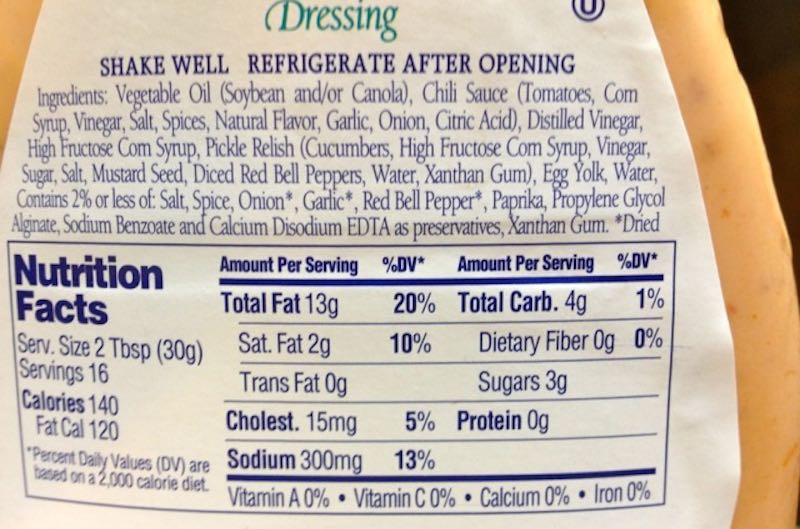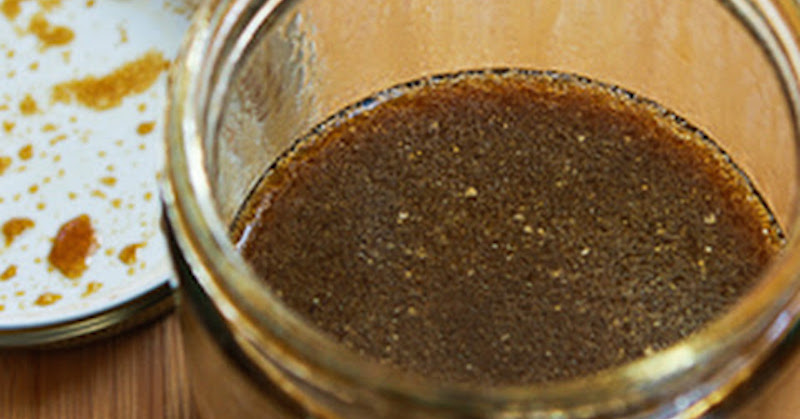Stop Using Store-Bought Salad Dressings That Are Cancer-Causing, And Make Your Own
Last updated on
Salads are probably one of the first kind of meals that pop into your mind when you think about eating healthy. We all know that salads are made with fresh vegetables (and fruits) that are fibrous, low in calories and nutritious.
However, one of the easiest ways that you can negate the healthy properties of a salad is by drenching it in rich, store-bought dressings. Many salad dressings are high in calories, as well as having high (harmful) fats and sugar content. For example, just 2 tablespoons of Girard’s regular Caesar dressing contains 150 calories and 15 grams of fat.
People are beginning to realize how much salad dressings can get in the way of their weight loss goals. But what a lot of people don’t know is that there are many other ingredients found in salad dressings that can cause physiological damage that goes further than just weight gain.
Here are some of those harmful ingredients:
1. Soybean Oil
Any conventional salad dressings usually contain soybean oil. Soy is notable for containing high levels of phytoestrogens, a compound that, although has health benefits associated with it, is considered an endocrine disruptor in large amount.
This means that consumption of too much soy may interfere with the body’s endocrine system, which can negatively affect your nervous system, lower your fertility and put you at risk to certain types of cancers.
Soy also produces goitrogen, a substance that can disrupt the production of thyroid hormones.
2. Xantham Gum
Xantham gum is a sugar-like compound which is made by mixing fermented sugars with a certain kind of bacteria. It is used as a thickening agent in salad dressing.
Side effects of consumption of xantham gum can include lung problems, and nose and throat irritation.
It is also advised not to use xantham gum if you are suffering from nausea, vomiting, appendicitis or any undiagnosed stomach pain as it is a “bulk-forming” laxative and could prove harmful in these situations.
3. Sodium Benzoate
Sodium benzoate is a synthetic (man-made) compound that is a carcinogenic food additive. When ingested, this compound chokes your cells, depriving them of oxygen. Your cells need oxygen to function properly and without oxygen they die.
Sodium benzoate is put in many commercially-prepared foods as it is the cheapest preservative that prevents foods from spoiling. It extends the shelf life of the products, but shortens human life.
4. Monosodium Glutamate
Monosodium Glutamate (MSG) is a flavour enhancer that is commonly found in food served at restaurants.
Although the Food and Drug Administration (FDA) has classified it as “generally recognized as safe” there is still a lot of controversy surrounding its use in food.
Although MSG can be found in many types of salad dressings it is most commonly used in ranch dressing. Many adverse reactions to MSG have been reported to the FDA, some of these include headaches, numbness in the face and neck, nausea, chest pain and physical weakness.
5. Calcium Disodium EDTA
Calcium Disodium EDTA is a compound commonly found in salad dressings. Its main purpose is to help with preservation and to promote the colour, texture and flavor of the food.
Side effects of consuming too much calcium disodium EDTA include abdominal cramps, diarrhea, low blood pressure, kidney damage, and in extreme cases even death. Although every time a salad dressing is used, it may not seem like “too much”, but in reality these toxins stay in your system and accumulate. They do not get eliminated as your liver is not able to filter them. Over time, your body that is exposed to this toxin and thousands other toxins, will eventually give way and develop health issues.
Even salad dressings that claim to be “healthier” alternatives, such as Kraft’s Zesty Italian Salad Dressing, have been found to use calcium disodium EDTA’s.
Healthy Salad Dressing Recipe
Go here for some tips on what you can add into your salad to make a rich bowl of nutritious meal.
There are very few store-bought salad dressings that could be healthy, so why not make it yourself at home? This way you know exactly what goes onto your salads.
Here is a simple recipe for homemade Sesame Tamari Vinaigrette for one portion of salad. If you want to make more, multiply the quantity and store unused dressing in an airtight container in the fridge.
- 3 tablespoons of freshly-extracted orange juice
- 1 tablespoon of apple cider vinegar (or rice vinegar)
- ½ teaspoon soy sauce* or to desired taste
- 1 teaspoon cold-pressed sesame oil
- 1 teaspoon raw honey
- ½ teaspoon of ginger juice (optional)
* Soy sauce is made from a fermentation process, so is therefore, safe for consumption in small amount.
Pour all of the ingredients into a small bowl, whisk until the honey is well-incorporated and there you have it! A tasty, low calorie and all-natural salad dressing.
Sources:
Girard’s regular Caesar dressing: https://www.webmd.com/food-recipes/the-best-of-the-light-salad-dressings
Xantham gum: https://www.webmd.com/vitamins-supplements/ingredientmono-340-xanthan%20gum.aspx?activeingredientid=340
Monosodium Glutamate: https://www.mayoclinic.org/healthy-lifestyle/nutrition-and-healthy-eating/expert-answers/monosodium-glutamate/faq-20058196
MSG in Ranch dressing: https://saynotomsg.com/basics_list.php
Calcium disodium in salad dressing: https://www.accessdata.fda.gov/scripts/cdrh/cfdocs/cfcfr/CFRSearch.cfm?fr=172.120
Kraft Zesty Italian Salad Dressing: https://www.foodfacts.com/ci/nutritionfacts/Condiments-Dressings/Kraft-Zesty-Italian-Salad-Dressing–fl-oz/13673
Sesame Tamari Vinaigrette Recipe: https://www.eatingwell.com/recipes/sesame_tamari_vinaigrette.html
Some of the links I post on this site are affiliate links. If you go through them to make a purchase, I will earn a small commission (at no additional cost to you). However, note that I’m recommending these products because of their quality and that I have good experience using them, not because of the commission to be made.



































 JOIN OVER
JOIN OVER
Comments